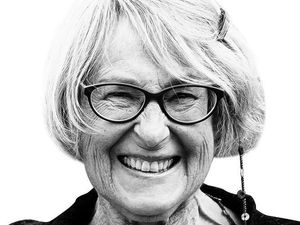Mark Andrews on Saturday: Rich pickings on the farm and one retailer we shouldn't mourn
This week, a plane containing 150 Romanian fruit pickers landed at Stanstead Airport, with a further five expected to follow.

According to the National Farmers Union, about 70,000 workers will be needed to reap this year's harvest, but so far only 30,000 British people have come forward, despite being offered £15 an hour.
Now £15 an hour may not be a king's ransom, and surely nobody expects to get rich picking fruit in a field. But for a 40-hour week it's above the national average wage, and you would think when people are being laid off left, right and centre, somebody would want to do it.
What's more, the estimated nine million people taking part in the Government's furlough scheme, already receiving up to £2,500 a month for staying at home, are also eligible to do the work. So you would think another £600 a week would make a nice little second income for some of them, given the long-term economic uncertainty. And then there are the millions of students sent home from university. Surely they could use a few grand for a couple of months' toil?
What is it about farm work that so many people seem to think is beneath them? The sad thing is that agriculture and manufacturing are the industries which actually generate wealth for the economy, whereas the service sectors often just redistribute wealth from one area to another. It is also an area with great scope for expansion, meaning Britain can become more self-sufficient rather than relying on imports for food.
The fact that 70,000 reasonably paid, unskilled jobs are up for grabs should be seen as a golden opportunity at a time like this. Instead, it seems British people would rather stay at home.
* * *
That coronavirus will have a dreadful effect on our high streets is in little doubt. That said, there is one retailer I would not be sad to see the back of.
Brighthouse, which recently went into administration, has made millions convincing people on low incomes they could afford giant televisions and American fridge-freezers, when clearly they could not. And then charging them interest rates of up to 99.9 per cent on things they never needed in the first place.
In reality, Brighthouse's collapse is less to do with coronavirus, and more down to the £14.8 million compensation the Financial Conduct Authority ordered it to pay to customers who had been mis-sold rip-off payment plans. The FCA ruled that 249,000 customers – about the population of Wolverhampton – had taken out agreements which 'may not have been affordable' and made payments 'which should have been refunded'. Imagine the misery that will have caused.
Nobody forced people to buy goods they could not afford, and customer must bear some responsibility. But basic morality says there is something deeply wrong with charging unemployed people almost 100 per cent interest on luxury goods after luring them in with the slogan 'You can afford it!'
While I feel for those whose jobs are under threat, the future would be much brighter without Brighthouse.





